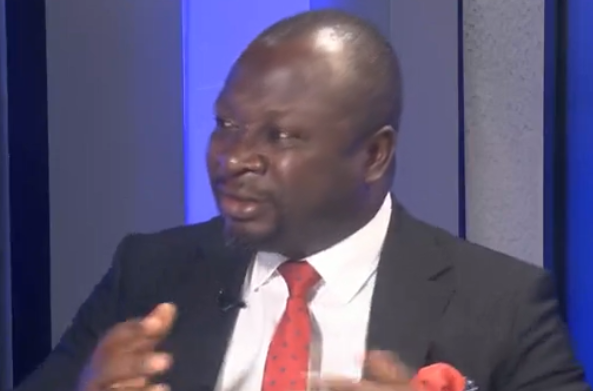
Audio By Carbonatix
The Ghana Association of Banks is optimistic lending rates will come down before the end of 2022.
This is line with the Bank of Ghana’s forecast that inflation which is one of the key determinants of interest rates will dip in the next couple of months.
Inflation surged to 23.6% in April 2022, forcing the Bank of Ghana to adjust its key lending rate to 19%. This is expected to help mop up excess liquidity from circulation and control inflation.
Speaking to Joy Business, Chief Executive of the Ghana Association of Banks, John Awuah, said the current hike in interest rates is an interim one and will thus be short-lived.
“The present situation [rising interest rates] is for the short term. We all know what is happening in the global economy.”
“We also believe that most of the inflation rates that have pushed the rates to where they are now are imported inflation; and circumstances around the world, supply chain constraints, tapering off”, Mr. Awuah pointed out.
He further said “we envisage a gradual decline in inflation which should positively impact lending rates. So we have every cause to believe that it is temporary though it is a concern”.
“It is for the short term but we believe that by next year, we should not be trending at the rate at which we are now”, Mr. Awuah added.
Banks cannot be blamed for rising interest rates
The Ghana Association of Banks also shot down suggestions to regulate the exchange rate regime in the country.
The Association of Ghana Industries in a recent reaction to high interest rates hinted that it will meet the Bank of Ghana to intervene in the market by engaging banks to reduce their cost of credit to the private sector.
But in response to suggestions by industry to bring in some control, John Awuah maintained that such a move will be counter-productive.
“Treasury bills in January or February this year was at 12%. As we speak it is at 21%. The Ghana Reference Rate which is a combination of policy rate, the interbank lending rate and the Treasury bills rate was 13.9% in January this year. But it is presently at 20.8%."
"So it’s not a matter of the banks, it is the fundamentals that are driving the rates that we are seeing now”, Mr. Awuah pointed out.
Latest Stories
-
At 30, you lack the experience to be a President – Prof Agyeman-Duah
37 seconds -
One-year extension of presidential term unnecessary – Baffuor Awuah
6 minutes -
Sam George lauds coordinated crackdown on cybercrime in Tabora and Lashibi
12 minutes -
100 arrested in Accra’s Tabora in major Mobile Money fraud crackdown
16 minutes -
BOG put GH¢4.69bn into gold-for-oil, lost over GH¢2.1bn with no impact — Audits show
34 minutes -
CRC opted for broader reforms over abolishing ex-gratia – Charlotte Osei
51 minutes -
Mahama’s record shows four-year presidential term is sufficient – Inusah Fuseini
58 minutes -
Four-year term enough for accountability – Inusah Fuseini
1 hour -
CRC Proposals: We were very mindful not to create problems while solving existing ones – Charlotte Osei
1 hour -
Ebo Noah’s ‘faith’ or Climate Change: Rains on Christmas eve and day in Ghana?
2 hours -
Dr Seidu Jasaw commissions CHPS facilities in Chaggu-Paala and Tuosa communities
2 hours -
Charlotte Osei describes CRC work as “a privilege of a lifetime”
2 hours -
Ablakwa inaugurates SMART classrooms for STEM education
2 hours -
Livestream: Newsfile discusses Constitution review report and AG’s ORAL drive
3 hours -
Michael Adangba Legacy Music Festival pulls huge crowd for maiden edition
3 hours

